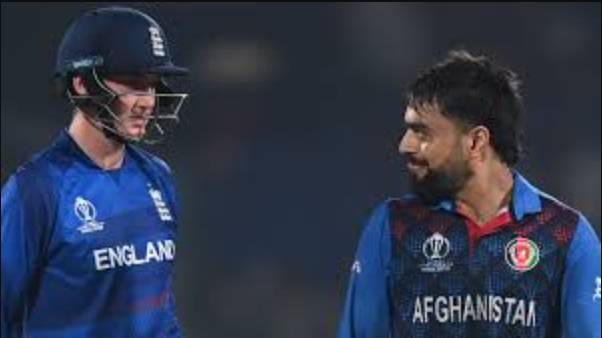UK govt backs England's cricket match against Afghanistan

Stay tuned with 24 News HD Android App

England's upcoming Champions Trophy cricket match against Afghanistan should go ahead despite calls for a boycott over the Taliban's treatment of women, according to a senior British government minister.
A group of more than 160 British politicians have called on the England and Wales Cricket Board (ECB) to refuse to play Afghanistan in protest at the women's sports policy of the Taliban.
Since returning to power in 2021 the Taliban have effectively banned female participation -- a move that puts the Afghanistan Cricket Board at odds with International Cricket Council (ICC) rules.
The ICC, however, has allowed the Afghanistan men's team to continue to compete in global competitions, with England due to face them in the one-day international Champions Trophy in Lahore on February 26.
And Cabinet minister Lisa Nandy said the match should be played amid concerns a boycott would see England docked points were they to forfeit the game.
"I do think it should go ahead," Nandy, the Secretary of State for Culture, Media and Sport told the BBC on Friday.
She added: "I'm instinctively very cautious about boycotts in sports, partly because I think they're counterproductive.
"I think they deny sports fans the opportunity that they love, and they can also very much penalise the athletes and the sports people who work very, very hard to reach the top of their game, and then they're denied the opportunities to compete.
"They are not the people that we want to penalise for the appalling actions of the Taliban against women and girls."
The ECB has resisted calls for a boycott, with chief executive Richard Gould saying instead he would "actively advocate" for collective action by the ICC instead.
That position has been backed by Downing Street, with a spokesman for UK Prime Minister Keir Starmer urging the ICC to take the lead on the issue.
South Africa, who are also due to play Afghanistan at the Champions Trophy, have backed the ECB's stance.
This is despite veteran anti-apartheid campaigner and British politician Peter Hain, who played a key role in sparking his native South Africa's sporting isolation during the 1970s, calling for a boycott.
"We are of the view that a more unified and collective approach from all ICC members will be more impactful," said Cricket South Africa president Rihan Richards.
